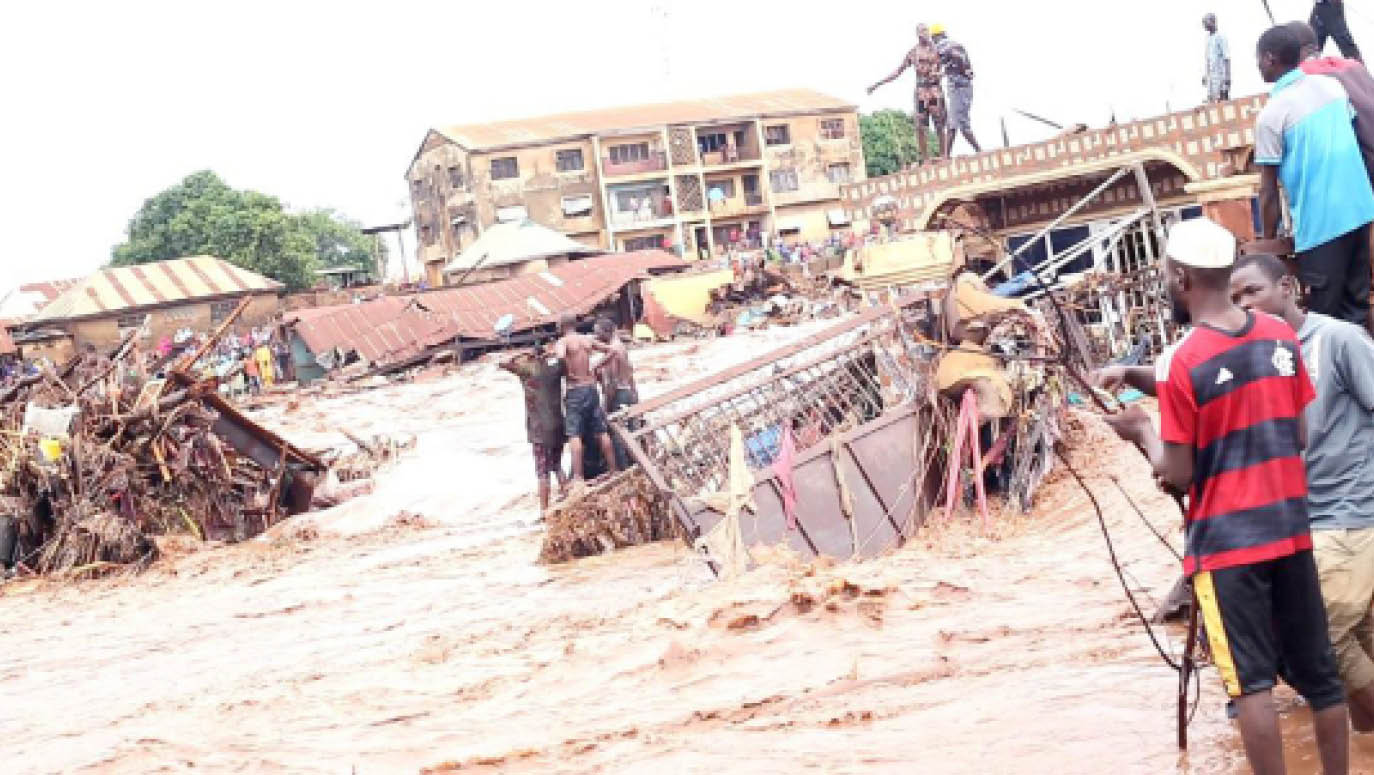A catastrophic flood has struck the quiet communities of Tiffin Maza and Anguwan Hausawa in Mokwa Local Government Area, Niger State, leaving a trail of destruction and heartbreak. In a tragic turn of events, 12 members of a single family perished in the deluge that swept through the region on May 28, 2025, following hours of relentless rainfall. The disaster, described by locals as one of the worst in recent memory, has claimed at least 21 lives, with fears that the death toll could climb far higher as rescue operations continue.
The Niger State Emergency Management Agency (NSEMA) confirmed the grim details, reporting that over 50 homes were submerged in the floodwaters, which also swept away farmlands, livestock, and personal belongings. Among the most heart-wrenching losses was the near-total annihilation of a single family, with only one survivor, now hospitalized, clinging to life. The family’s home, like many others in the low-lying areas of Mokwa, stood no chance against the torrential waters that surged through the communities without warning.
Local residents paint a harrowing picture of the disaster. “It was like a river had been unleashed on us,” said Aisha Usman, a resident of Anguwan Hausawa. “The water came so fast, there was no time to escape for many. We heard screams, but the darkness and the rushing water made it impossible to help.” The flood’s ferocity was compounded by the region’s geography, with Tiffin Maza and Anguwan Hausawa situated in areas prone to flooding during heavy rains. Despite this, residents say they were unprepared for the scale of this disaster, which caught the community off guard.
Among the most alarming reports is the fate of over 50 almajirai students, young boys studying at local Islamic schools, who remain unaccounted for. These children, often from impoverished backgrounds, are feared to have been swept away by the floodwaters. “The almajirai were in their school when the water came,” said Mallam Idris, a local teacher. “We don’t know how many survived. We’re praying for miracles, but it’s hard to hold onto hope.” The loss of these young lives has sent shockwaves through the community, with families and neighbors banding together to search for survivors amidst the wreckage.
NSEMA has mobilized rescue teams, supported by local volunteers, to comb through the debris and search for those still missing. The agency’s spokesperson, Ibrahim Audu, described the situation as “dire,” noting that the flood’s impact extends beyond loss of life. “Homes have been destroyed, crops washed away, and livelihoods shattered,” Audu said. “We are working around the clock to provide relief, but the scale of this disaster is overwhelming.” Emergency shelters have been set up for displaced residents, and aid organizations are beginning to deliver food, clean water, and medical supplies to the affected areas.
The flood’s timing could not have been worse, as Mokwa’s residents were already grappling with the challenges of the rainy season. Nigeria’s northern regions frequently experience flooding during this period, but climate experts warn that such events are becoming more frequent and severe due to changing weather patterns. “What we’re seeing is not just a natural disaster but a symptom of broader environmental changes,” said Dr. Fatima Bello, a climate researcher at the University of Minna. “Deforestation, poor urban planning, and climate change are amplifying the risks for communities like Mokwa.”
For the surviving members of the community, the emotional toll is immeasurable. The single survivor of the family that lost 12 members is receiving treatment at a local hospital, but their condition remains critical. Neighbors have rallied around the survivor, offering prayers and support, but the loss of an entire family has left a void that words cannot fill. “They were good people, always helping others,” said Halima Sani, a neighbor. “To lose them all in one night—it’s too much to bear.”
As rescue efforts continue, questions are being raised about the adequacy of flood preparedness in Niger State. Residents have criticized local authorities for failing to implement early warning systems or improve drainage infrastructure in vulnerable areas. “We’ve been talking about the flooding problem for years,” said Musa Abdullahi, a community leader. “If there had been better planning, maybe some of these lives could have been saved.” Authorities have promised to investigate the causes of the disaster and provide support to affected families, but for many, these assurances come too late.
The tragedy in Mokwa serves as a stark reminder of the vulnerability of Nigeria’s rural communities to natural disasters. As the nation mourns the lives lost, the focus now shifts to recovery and rebuilding. Humanitarian organizations are calling for donations to support the displaced, while local leaders are urging the government to invest in long-term solutions to mitigate future flooding risks.
For now, the people of Tiffin Maza and Anguwan Hausawa are left to pick up the pieces, grappling with grief and uncertainty. The memory of the 12 family members lost in the flood will linger in the hearts of this close-knit community, a somber testament to the power of nature and the fragility of life.
Join our Whatsapp channel to stay updated always!


